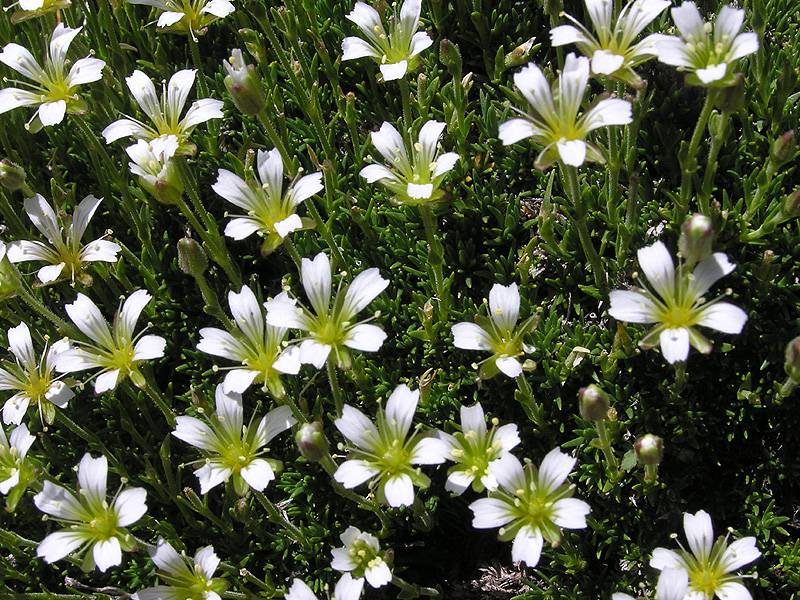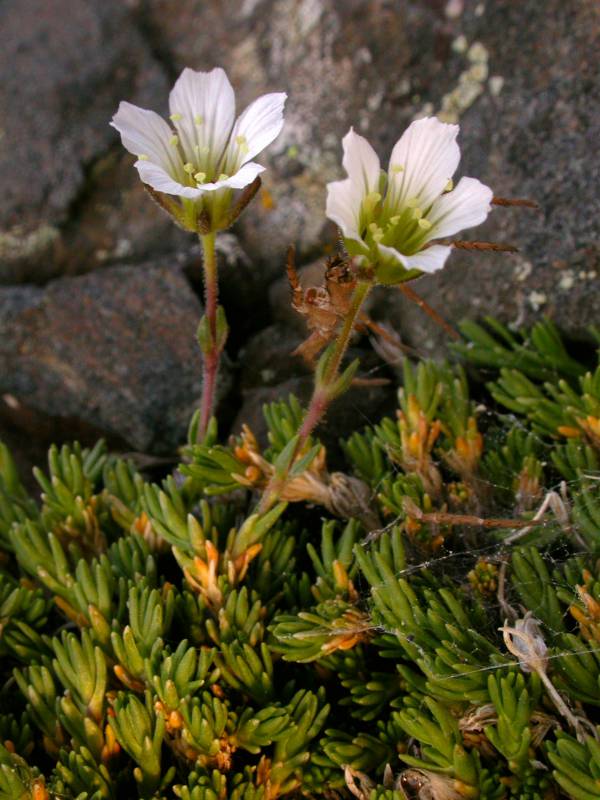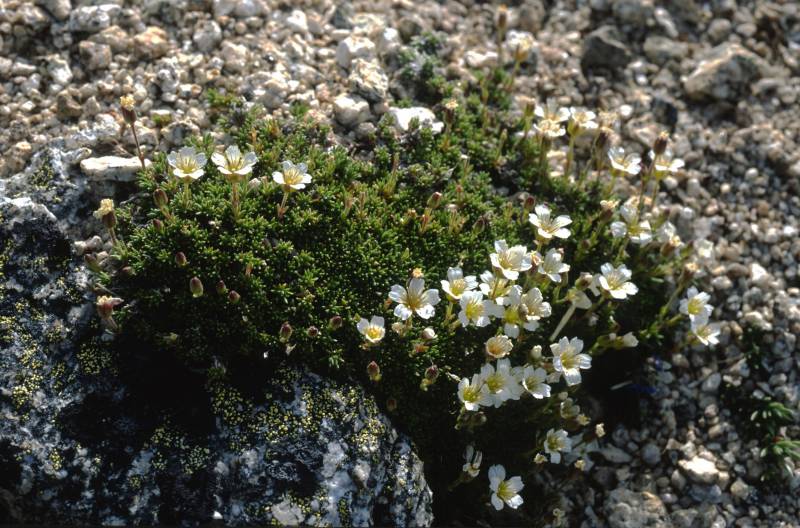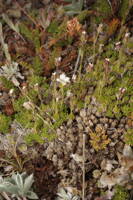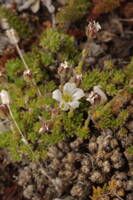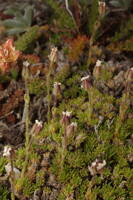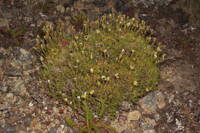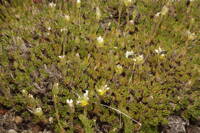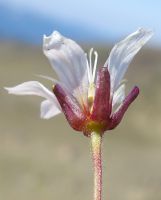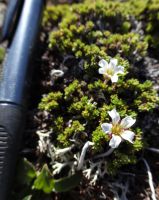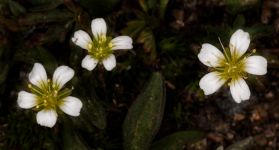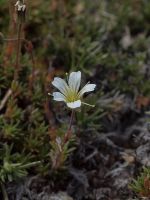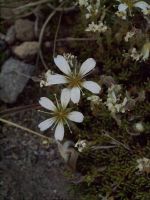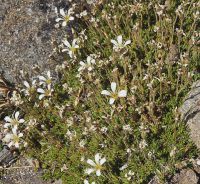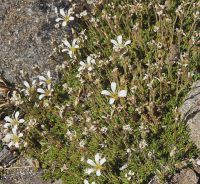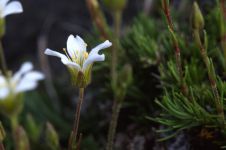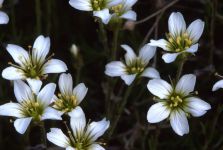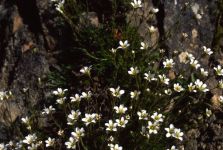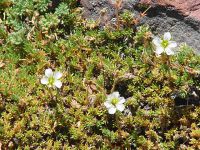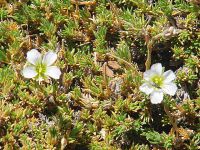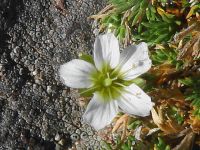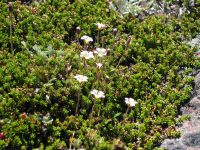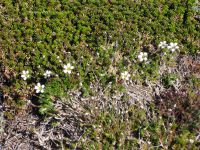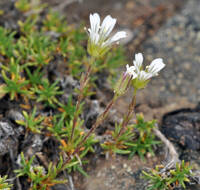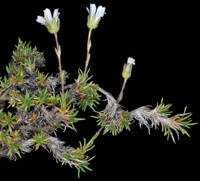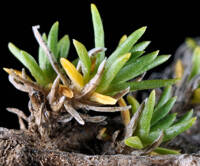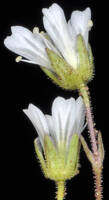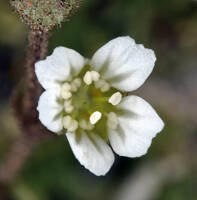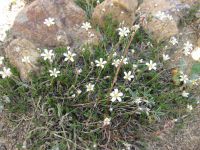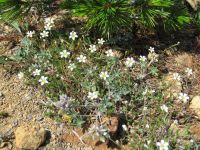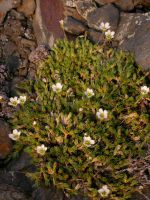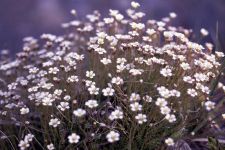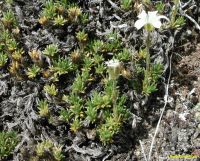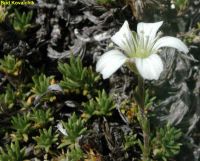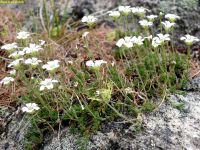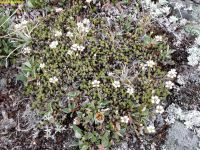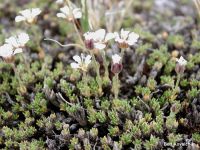Distribution: Occurring on both sides of the Cascades crest in Washington; Alaska to central Oregon, east to the Rocky Mountains as far south as New Mexico.
Habitat: Dry, subalpine to alpine slopes and tundra.
Flowers: June-August
Origin: Native
Growth Duration: Perennial
Conservation Status: Not of concern
Pollination: Bees, flies, wasps
Perrenial, mat-forming cushion, stout taproots; stems erect, 1–12 cm. long, trailing stems 2–20+ cm. long, stipitate-glandular; internodes 2 to 6 times leaf length.
Tightly overlapping, distally cauline, connate proximally, sheathed scariously or herbaceously, sheath 0.3-1.5 mm. long; blade straight and flat or curved outwardly, 3 angled and 3 veined abaxially, midrib prominent, lateral veins weak in distal third, needlelike to subulate, 1–8 × 0.4–1 mm., flexuous with margins thin or scarious, occasionally finely ciliate, apex rounded to acute or apiculate, green, shiny and glabrous; axillary leaves present, among vegetative leaves.
Occasionally 2 to 3 flowered cymes, mostly solitary, terminal flowers, bracts subulate and herbaceous; pedicels 0.3–1.5 cm. long, usually densely stipitate-glandular; hypanthium cup-shaped; sepals prominently 3 veined, narrowly oblong to ovate, 2.9–6.5 mm. long, apex rarely purple, rounded, sepal not enlarging in fruit; petals often white, ovate to spatulate, roughly 1.5 times sepal length, apex entire.
Capsules narrowly ellipsoid, 3.5-6 mm. long; seeds tan to reddish tan, suborbiculate with radicle prolonged into beak, 0.6–0.7 mm., compressed shape.
Publication: Willdenowia 47(1): 12. 2017.
Minuartia obtusiloba (Rydb.) House [FNA5]
PNW Herbaria: Specimen records of Cherleria obtusiloba in the Consortium of Pacific Northwest Herbaria database
WA Flora Checklist: Cherleria obtusiloba checklist entry
OregonFlora: Cherleria obtusiloba information
E-Flora BC: Cherleria obtusiloba atlas page
CalPhotos: Cherleria obtusiloba photos

